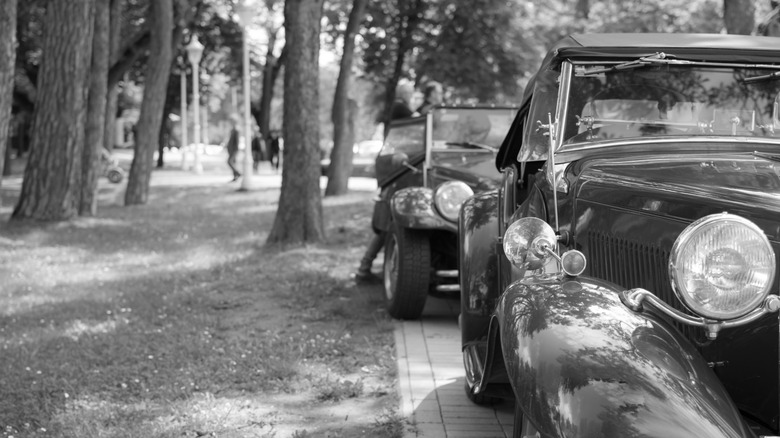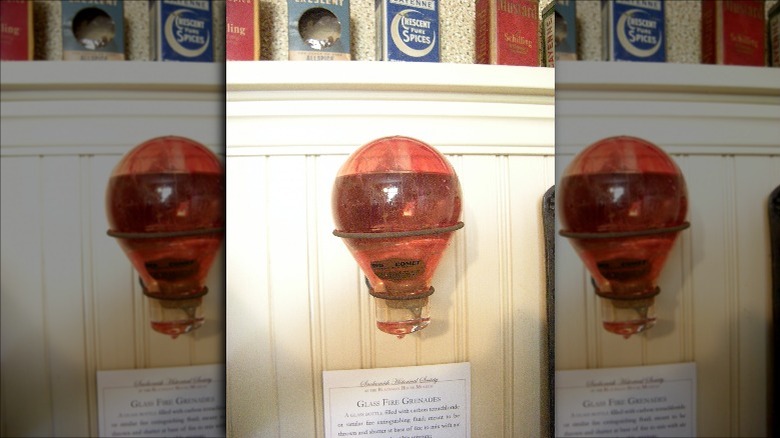Antiques Roadshow Won't Appraise These Items
The timeless PBS program "Antiques Roadshow" is a wellspring of hope for those chasing that classically American ideal of striking it rich with as little effort as possible. Just one episode sends us spelunking through the attic in search of grandma's dusty porcelain figurines or that box of old coins in hopes turning what we thought was trash into valuable treasure.
But while the "Antiques Roadshow" appraisers are happy to help you put a price on your family heirlooms, there are some items that they won't even take a look at. Those looking for their 15 seconds of fame on PBS have to follow a set of rules governing the types of trinkets they can bring onto the show. According to Mental Floss, appraisers have the right to refuse to take a look at several items, typically those that may present a safety risk to them or anyone else on the show. This includes ammunition, explosives, or other hazardous materials that have been sitting in a garage somewhere for decades just waiting to melt someone's skin off their face.
Some items are just too basic for the experts at "Antiques Roadshow." If you've got a stamp collection, forget about it. Coins, cars, paper money, and fossils are also too cliché for the show. You gotta keep looking for something truly unique to get some camera time.
The weird fire 'safety' devices that Antiques Roadshow won't appraise
While they'll take a look at all kinds of odd things people keep in weird collections, there's one strange old fire safety device that is just too dangerous for the appraisers at "Antiques Roadshow" to touch. Back in the day, people kept glass fire extinguishers in their homes for incendiary emergencies. The thing was, the stuff inside these so-called glass fire grenades could be just as deadly as the flames they were meant to put out.
According to The Spokesman-Review, some of these little glass balls were filled with water, but others contained the toxic substance carbon tetrachloride. The idea was to throw them at the base of a fire to extinguish it. Better than burning alive, but luckily we've found more effective and less noxious ways to douse flames. If you've got one sitting around at home, just let it alone, as carbon tetrachloride is now illegal due to the detrimental effects it has to human health. It wouldn't be worth much anyway. The Spokesman-Review valued one reader's fire grenade at a measly $30 to $40. Better to keep searching for early paintings by famous artists and other bygone valuables. The Houston Chronicle reports that an early Diego Rivera painting was valued at $1.2 to $2.2 million, the most valuable item ever appraised on the show.

